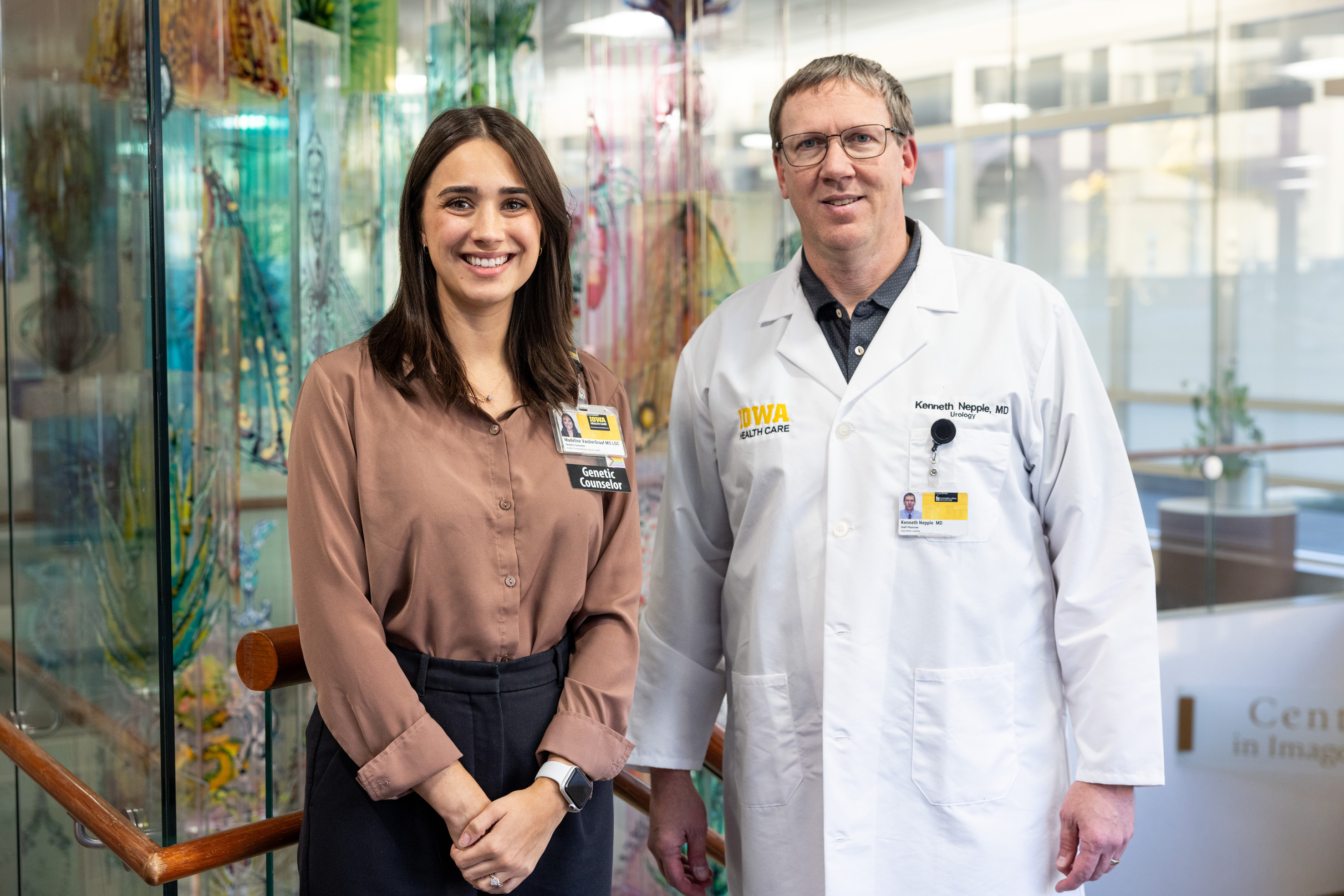Clinicians at the University of Iowa were recently awarded a competitive grant for a multi-faceted quality improvement project using artificial intelligence (AI) to improve advanced prostate cancer care. The project is backed by a collaborative funding initiative launched by American Urological Association (AUA), Pfizer, and Astellas earlier this year.
The goal of the project is to use multiple quality improvement approaches, enhanced by AI-based tools, to identify more individuals with advanced prostate cancer who would benefit from genetic testing. Genetic testing can influence a patient’s medical therapy and may provide information about cancer risk in siblings, children, and other family members.

Driving earlier interventions for a high-risk population
“It is really important to know if there is a genetic reason behind a man’s advanced prostate cancer, because it could wind up saving the life of a close family member,” says Kenneth Nepple, MD, associate chief health information officer and urologic oncologist at UI Health Care, as well as the principal investigator for the project. “If there is a genetic mutation that is shared among siblings or children, we can do more targeted screening and intervene earlier.”
Prostate cancer is a significant health issue among men, with up to 10-15% of advanced prostate cancer patients having germline mutations. Yet genetic testing rates for men with advanced prostate cancer remain low, with national rates hovering around 15%.
“The first hurdle we have to overcome to improve testing rates is making it easier for physicians to identify patients who qualify for genetic testing,” says Nepple. “It can take physicians hours to review all documents in a chart to identify eligible patients. That’s where the AI component comes in, helping to scan the electronic health record (EHR) and flag patients for the physician.”
Using AI to more efficiently identify patients

As part of the grant, Nepple is working with UI Health Care colleagues, including Richard Hoffman, MD, emeritus professor of internal medicine, Colleen Campbell, PhD, director of genetic counseling, and Madeline VanDerGraaf, MS, a licensed genetic counselor, to configure an AI tool called Evidently to automatically alert physicians if a patient may be eligible for genetic testing. From there, the team plans to use a variety of outreach tools to let patients know they are eligible, why genetic testing is important, and how to get it.
“We’re already using the tool to identify patients during clinical encounters, and will only improve our capabilities from here,” says Nepple. “We are working to further refine how the tool is configured so we can identify all patients within our system that have advanced prostate cancer and are eligible.”
More on prostate cancer care at UI Health Care: Prostate Cancer | Holden
Learn more about UI Health Care’s approach to adopting digital health and AI-based tools: Digital Health and AI-based Tool Governance | University of Iowa Health Care